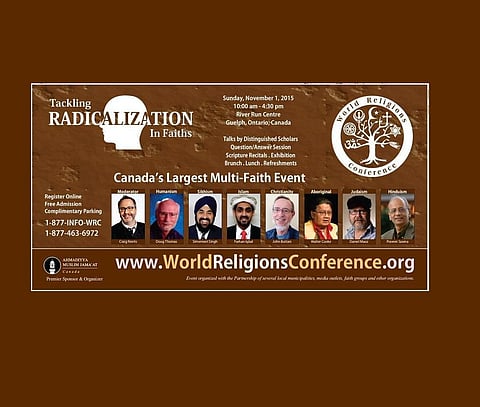Seven speakers from different faith traditions sat together to speak about radicalization as pertaining to their own belief system. The speakers were Doug Thomas of Elmira, representing Humanism; Simerneet Singh of Chicago, representing Sikhism; Farhan Iqbal of Toronto, representing Islam; John Buttars of Guelph, representing Christianity; Walter Cooke of Hamilton, representing Aboriginal Peoples; Daniel Maoz of Cambridge, representing Judaism; and Praveen Saxena of Guelph, representing Hinduism.


